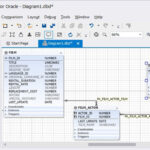Welcome to the world of virtual servers, where developers and testers have found a cost-effective, scalable, and secure solution for their development and testing needs. The use of virtual servers has revolutionized the way applications are developed and tested, allowing developers to create sandboxes for their applications without affecting the underlying hardware or software.
Virtual servers are created by using virtualization software to divide a physical server into multiple isolated environments, each with its own operating system, CPU, memory, and storage resources allocated from the host machine’s resources.
In this article, we will delve deeper into the world of virtual servers for development and testing, exploring the benefits and must-haves of a good developmental VPS. So, whether you’re a seasoned developer or just starting, let’s dive in and explore the world of virtual servers together!
What is a Virtual Server?
A virtual server is like the chameleon of the computer world. It’s a software-based replica of a physical server that can perform the same tasks and offer the same capabilities. Think of it like having a digital clone of a server – pretty cool, huh?
To create a virtual server, you need virtualization software that can divide a physical server into multiple independent environments. Each environment gets its own operating system, CPU, memory, and storage resources. It’s like having separate apartments within the same building.
The best part about virtual servers is their flexibility and scalability. You can create, modify, and delete virtual servers with ease, optimizing resource usage and reducing hardware expenses. This means that you can quickly replicate virtual servers to scale up or down as needed, without having to buy and set up new hardware.
Virtual servers are also popular for development and testing purposes. They’re cost-effective and reliable, allowing developers to create sandboxes on virtual servers. Additionally, virtual servers provide a level of security and isolation. Each virtual server is separated from other virtual servers running on the same host machine, so any problems or security breaches on one virtual server won’t affect other virtual servers. It’s like having your own private room in a shared house.
Overall, virtual servers are an excellent choice for those who want flexibility, scalability, and cost-effectiveness. They offer a wide range of benefits. It’s like having a toolbox filled with different tools for different tasks – except it’s all on your computer.

Why Use A VPS for Test and Development?
Using a virtual private server (VPS) for test and development has many advantages that you don’t want to miss out on! Let me tell you about some of the most important ones.
Costs
First and foremost, using a VPS can be a game-changer for your budget. Why? Well, because it’s much more cost-effective than purchasing and maintaining physical servers. With a VPS, you only pay for the resources you need and can easily scale up or down as required.
Ease of Use
Let’s not forget how easy it is to set up and manage a VPS compared to physical servers. You can quickly provision a VPS with the necessary resources and configure it to your requirements. Plus, remote management is possible, which is super convenient for distributed teams.
Scalability
But wait, there’s more! VPSs offer great flexibility and scalability, which means you can effortlessly add more resources or create new VPSs as necessary. This is particularly important for intricate projects requiring a lot of computing power.
Security
Finally, VPSs are generally more secure than physical servers because they are isolated from other VPSs on the same physical server. So, any security issues or breaches that occur on one VPS do not impact others.
Are you sold on using a VPS for your next project? If so, you’ll want to check out Cloudzy’s advanced Windows VPS, which offers all of these advantages and more. With 15 locations around the world and a 99.95% uptime: Check out Cloudzy’s Windows VPS.
What to Look for in a Developmental VPS?
OS Support
Operating system support is crucial – make sure the provider supports the specific OS you require for your development work. It’s worth checking if they can provide your required version or configuration.
Scalability
Scalability is key, especially for development work where you may need to test applications in various environments. Ensure that the VPS is scalable so you can easily adjust resources as needed.
Control Panel
Finally, a user-friendly control panel is a must-have. A good VPS provider should offer an easy-to-use control panel that allows you to monitor resource usage, reboot your VPS, and manage backups without fuss.
Conclusion
So, to make sure you avoid poor choices and take your projects to the next level with the right VPS provider, be sure to check for these critical must-haves when selecting a VPS for developmental purposes!




Leave a comment
Have something to say about this article? Add your comment and start the discussion.